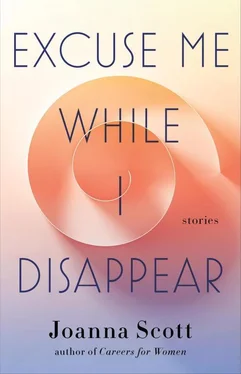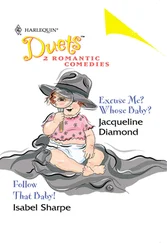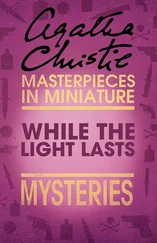She resumed her search for mussels. Soon she had filled her basket, and she returned to the cottage where she lived with her father. He was a widower who worked as a gilder, and evidence of his trade was apparent in the clutter of gilded picture frames and furniture. Though renowned for his skill, the father produced his goods faster than he could sell them, and he stuffed the cottage with the overflow and then scolded his daughter for failing to keep the rooms dusted and orderly.
The housework could wait, for Williamina had a more important task. She dumped her harvest of mussels onto the table. The clattering reminded her of the sound the waves made along the pebbly edge of the firth. She spread them out and then attacked them with a knife, prying them open one by one. I remember mistakenly thinking as I was reading that the girl was preparing dinner. Instead, I soon learned that she was searching for a delicate gem found only in the freshwater mussels of that region, a type of small pearl, usually no more than a quarter inch across, with a lustrous silver hue.
A sweat broke out on her forehead as she continued with her concentrated work. It looked like her most recent harvest was going to disappoint her. Only when she had pried open the very last mussel and scooped out the flesh was her effort rewarded. Attached to the shell was the biggest pearl she’d ever found, silver and perfectly round and as big as an acorn!
She added the treasure to her collection of pearls, dropping it into a special jar. This jar, the author took the time to explain, had been intended as a powder jar and was made of frosted glass, painted with pink roses, and crowned with a gilded lid. After the gilder had dropped the jar on the floor and chipped the glass, no one would purchase it, so he had given it to his daughter. The jar was the one gift Williamina had ever received from her father, and she cherished it. It was a beautiful vessel, and now that it was filled with pearls, the chip in the glass was hardly noticeable.
* * *
Williamina loved her father, but in reality he was a mercenary man who cared for nothing but making a profit. When he heard about a certain eel-faced accountant who was in search of a wife to accompany him to America, Williamina’s father acted quickly. He betrothed his daughter to the eel, or, in terms the eel preferred, given his accounting expertise, the father traded the family asset at fair market value.
And so poor Williamina, sold for five hundred guineas, found herself at sea, en route from Liverpool to Boston in a second-class berth, her slender, finless husband squirming on top of her, his slick back cold to her touch, his energetic sperm wiggling in a pack in pursuit of their prey. She was pregnant by the time she arrived in New England. She dismissed the first episodes of nausea as the lingering effects of seasickness and set about arranging the small furnished flat they’d rented on Greenough Lane, washing the dusty dishes and sweeping up the rat droppings, while her husband went to work as an accountant for a dry goods warehouse.
The eel kept sloppy ledgers, and it only took three months for him to be fired from his job. Williamina, who by then understood the significance of her swelling belly, took out the jar she’d kept hidden in her trunk and sold some of her precious pearls to pay for a rocking bassinette. A daughter with a fine mop of black hair and eyes as dark as her mother’s was born on the seventh of June. The eel reportedly shrank from the sight of the infant. His repulsion was never fully explained, though I suppose the author was implying that the eel felt ashamed at being unable to provide for his family. After a year in Boston, he failed to find new employment. Being an eel, he took advantage of his ability to swim backward and returned across the ocean to Scotland, leaving his wife and child to fend for themselves.
In her husband’s absence, Williamina sold her pearls by the handful to pay the landlord and the grocer. She spent her last and largest pearl, the one as big as an acorn, on a bed for her daughter, who had outgrown the bassinette. After the jar was empty, Williamina went out looking for work. Leaving her daughter in the care of a neighbor, she responded to an advertisement for a seamstress, but after a week’s trial she was dismissed for being too slow with her hemming. She spent many hard months taking in washing and selling flowers on the street.
One day she struck up a conversation with a gentleman who had purchased flowers from her. I remember that he carried a closed umbrella, and his cheeks stuck out like mahogany doorknobs above his whiskers. He revealed that the flowers were for his wife, who was out of sorts because their beloved old servant had gone to live with her daughter in Albany. The gentleman asked Williamina if she knew of any girls who were looking for domestic employment. She said she did know of just the right girl, and she agreed to send her to the gentleman’s house in Cambridge. Williamina herself arrived at the address the next day.
Upon opening the door, the gentleman had a good chuckle as he realized that the flower girl had recommended herself. He hired Williamina on the spot.
* * *
The gentleman, Williamina learned, was a professor at Harvard. In the weeks that followed, she was surprised to find that the professor showed little interest in the books in his study. He stayed out most every night and slept away the mornings. His wife appeared oblivious to her husband’s dissolute ways. Williamina felt some pity for her, but she was grateful to have steady work and happily accepted when the professor’s wife invited Williamina and her daughter to take up residence in the cozy suite on the third floor.
She enjoyed the peacefulness of her routines and never complained. She dusted and washed and swept and cooked, always keeping one eye on her little daughter, who followed her around the house. She told herself that someday her daughter would go to school, and, unlike her mother, she would complete her education, learning everything there was to know.
If Williamina felt any displeasure in her work, it was in her opinion of the professor. She believed a Harvard professor had a responsibility to be a model of decency for his students. It pained her to hear the front door creak open when he returned home in the morning. She told herself that the professor’s nightly philandering was none of her business, but one day his eyes seemed more bloodshot than usual, and she felt she had to speak out.
“As my father used to say, sir,” she murmured, pouring him his morning tea at noon, “God made darkness to keep us home at night.”
Her suspicions became clear to the professor, and he set out to defend his innocence in a manner that took Williamina by surprise. He insisted that he had done no wrong and she had judged him unfairly. He even went so far as to invite Williamina to accompany him when he went out the following night. Her first impulse was to take offense, thinking he meant her to indulge with him in unspeakable iniquities. But the professor was so insistent in his urging and so persuasive in his claim of innocence that she couldn’t contain her curiosity. She accepted his invitation.
* * *
The professor’s wife was cheerful when her maid and her husband left the house together the next evening after dinner. She even promised to read to Williamina’s daughter and tuck her into bed. I remember worrying on Williamina’s behalf. Surely the professor was up to no good, and his wife was in on the conspiracy. My imagination raced ahead of the story as I scrolled through the microfilm. I feared most for Williamina’s daughter, left in the care of the professor’s wife. I couldn’t stand waiting to find out what was going to happen, and I remember skipping over several pages in a panic.
Читать дальше












